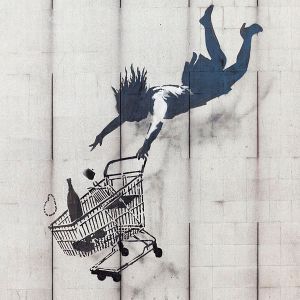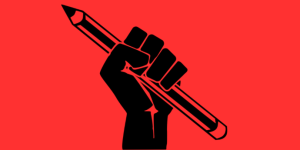Below is the final bit of a post I wrote when I first read Long’s 2015 book SLA and TBLT. Nearly 4 years later, I’m half way through an on-line course for teachers about Long’s version of TBLT, and I think there are signs, however tentative they might be, that we’re making progress.
………..
Let me emphasise what Long says about the dividends you get from undertaking his kind of TBLT. Yes, it involves “some front-end heavy lifting”, but it’s worth it – it pays big dividends, and the needs analysis & materials production doesn’t have to be re-done every time a course is offered. The more you look at it, the more feasible Long’s approach is. There’s a great deal of work done already, and the “front end” bit is such a worthwhile investment in high quality ELT that it seems to me to be an irresistible argument. I reckon that producing a TBLT syllabus of the kind Long proposes for local use could be done with an investment of around 200 hours of teachers’ time.
Imagine what would happen if the resources currently dedicated to producing and promoting coursebooks were devoted to producing and promoting Long’s TBLT. Millions of dollars are currently spent on producing and promoting a single series of coursebooks of the sort Pearson manufactures, and that series is then used by teachers all over the world in a one-size-fits-all, grammar-based, PPP approach that we know is hopelessly inefficient. Not just inefficient, but an insult to our teaching profession. Coursebook-driven ELT robs us of our trade, shackles us, restricts us, suffocates us. We can’t do our job properly and our students suffer the consequences. It’s as if our training does no more than help us to use a crutch, the coursebook, that we never throw away and so we never get truly healthy and free. We work like cripples, hobbling around in a confined space, using all our ingenuity to circumvent as best we can the oppressive rules we’re forced to teach by, and we never actually do the job as well as we’re capable of.
Nobody in the ELT establishment has offered a good defence of coursebook-driven ELT; they all fall back on arguments of “convenience” and “flexibility” that do nothing to respond to the rational, evidence-based arguments put forward by Long and others against coursebooks. The argument in favour of coursebooks is the same argument that Ragnar Redbeard (a wonderfully invented pseudonym) suggested in Might is Right: power wins over moral right. To put it another way, it’s a fait accompli, a done deal, just the way things are.
How much better it would be if the resources currently spent on making and promoting coursebooks were spent on designing the type of course that Long so persuasively and meticulously describes! Imagine if the hundreds of millions of dollars currently spent on coursebook-driven ELT were spent differently; if Pearson invested in helping local ELT schools all over the world to offer locally produced courses that met local needs; if they made their business helping to identify target tasks, collecting and analysing genuine samples of target discourse, and producing materials to support the pedagogical tasks that flow from them; if they supported locally trained teachers with local, national and international events that helped them to better take charge of their own courses. Imagine Joe, a bright-eyed, young go-getter executive in Pearson suggesting this business plan to the board. When the inevitable question “How much would profits suffer, Joe?” comes up, he answers “They’re already suffering! How much longer are we going to produce dud materials for TENOR (Teaching English for No Obvious Reason)?”
Imagine:
- The British Council is stripped of its privileged position in the commercial market and its mission in TEFL becomes to lead real change and innovation.
- Cambridge Assessment scraps CELTA and appoints Glenn Fulcher as its CEO.
- Frank and open criticism of the ELT establishment is encouraged.
- The cosy culture of “Using Cereals Packets to make your own Flash Cards” is replaced by a culture of critical pedagogy.
- IATEFL and TESOL scrap the Exhibitors Hall at their conferences.
- ELT publishers stop producing coursebooks.
The whole edifice of the ELT industry comes crashing down, leaving the way free for something better. Something local, vibrant, relevant, learner-centred, and EFFICIENT. For this to happen we need a groundswell of local action, and a change of heart and mind. We really must take Long’s principled, practical, proven approach more seriously. It’s by far the best way I’ve seen to rescue ELT from the hopeless state it’s in, and it could lead to a situation in ELT where teachers, as Long says, “match the expectations we have that purveyors of services (physicians, lawyers, nurses, architects, engineers, etc.) will provide what we need, and not simply dish out the same product to everyone”.
We hide behind so many well-rehearsed excuses: It’s too complicated; I’m too busy; They’re too busy; My boss won’t let me, The students wouldn’t like it; It’s not so bad – I like order, you like order, we all like order. Etc., etc.,; we take what we mistakenly see as the easy way out and so on it goes. The establishment figures of ELT who block up the hall and just won’t get out of the way spin the same familiar message, the one they’ve been trotting out for 30 years now, that coursebook-driven ELT is just fine and dandy. Well, it isn’t. And there is now, thanks to Long’s evolving work, a splendid alternative. The times they are a changing.
Long’s References list.
Auerbach, E. R., & Burgess, D. (1985). The hidden curriculum of survival ESL. TESOL Quarterly 19, 3, 475-495.
Bartlett, N. D. (2005). A double shot 2% mocha latte, please, with whip: Service encounters in two coffee shops and at a coffee cart. In Long, M. H. (ed.), Second language needs analysis (pp. 305-343). Cambridge: Cambridge University Press. Cathcart, R. L. (1989). Authentic English and the survival English curriculum. TESOL Quarterly 23, 1, 105-126.
Granena, G. (2008). Elaboration and simplification in scripted and genuine telephone service encounters. International Review of Applied Linguistics 46, 2, 137-166.
Long, M. (2015) Second Language Acquisition and Task-based Language Teaching. London, Wiley.
Serafini, E. J., Lake, J. B., & Long, M. H. (2015). Methodological improvements in identifying specialized learner needs. English for Specific Purposes 40, 11-26.


